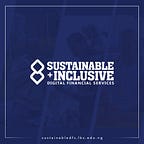The State of Financial Product Innovation in Nigeria: Gaps & Opportunities
The industry’s product-market fit problem doesn’t seem to be going away
2020 was a milestone year, and the COVID-19 pandemic introduced new unforeseen factors, distorting the country’s financial inclusion journey and further exposing the fragility of the financial services system.
The lockdown and its antecedents emphasised the need to innovate and re-imagine financial products and services to meet the evolving needs and expectations of customers, improve product-market fit and move the financial inclusion needle.
Over the last four years, our flagship publication, the annual Digital Financial Services in State of Market report (SOMR), has reported the state of digital financial services and financial inclusion in Nigeria, providing insights about consumers, providers and regulatory issues
We launched the 2020 SOMR on December 2, 2020 and we dare say, it’s our best edition yet!
This year we have taken a bold step to adapt our report, focusing on product-market fit across three highly underserved and largely under-represented customer segments — rural dwellers, women and youth.
Based on feedback, we also enhanced the utility and relevance of the publication for our readers, especially providers who rely on our annual reports to guide them in evidence-based decision making. We achieved this via a new reader friendly design and layout, trimmed off several layers of extraneous content, thereby making the 2020 SOMR a visual feast and an easier read.
The state of product development in Nigeria
The Consumer Insights section focuses on 3 major consumer segments (Rural Dwellers, Women and Youths) and highlights product development opportunities for providers.
We do a deep dive into the financial habits and behaviours of these three critical target segments. Through these consumer segment profiles, we dig further into their financial habits across the different product categories (savings, loans, remittances, payments, emergency, pension and investments) and provide insights on delivery channels across the product lifecycle processes (awareness, evaluation, purchase, delivery and after sales).
Our analyses showed that financial products and services opportunities abound among the three customer segments presented. Despite the obvious opportunity, the current level of financial access and utility among the three customer segments signify major misalignment, with product-market fit being one of the key problems.
The Supply side
In the financial services providers section, we examine their product development practices in action, comparing their approaches with global best practices, and subsequently benchmarking alongside fast moving consumer goods (FMCG) companies that are already serving the mass market.
We identified factors limiting FSPs’ ability to produce compelling products and meet market expectations. These include: regulation, talent and manpower, IT infrastructure, security, third-party service charge, finance, market information and awareness, and partnerships.
FSPs will need support to scale these hurdles. But beyond that, they will also need to step out of their comfort zones and embrace customer-centricity with renewed fervor.
Policy Insights
Alignment with the regulatory and policy environment can either make or mar new product innovations. No matter how good the product or service is, it has to gain regulatory approval, else it is dead on arrival. Thus, we also examine the regulatory landscape, identifying enabling and inhibitive policies and regulations and their impact on product development and innovation.
The 2020 DFS State of Market Report is stacked with insights on product development practices, gaps & opportunities in the Nigerian market.
This SOMR is a call to action for change, for customer-centricity and the adoption of human-centered design (HCD) techniques towards product development and innovation. We hope this year’s report will challenge your thinking about financial products and services, and stimulate new approaches to addressing the gaps in financial services.
